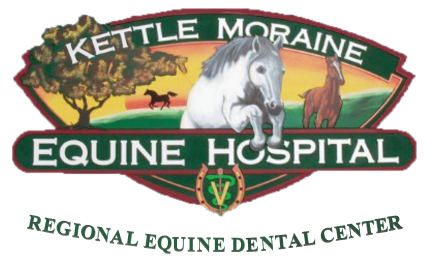Wellness and Preventative Care
Wellness Examinations and Prepurchase Exams
Whether you are looking to get a new horse, have acquired a new horse, or just want a routine check up for your horse, we are here to help. Our veterinarians can tailor the exam to meet your and your horse’s needs. They will start by getting a history, observing your horse at a distance, and then acquiring vitals. From there, they will palpate your horse for any abnormalities, such as heat, swellings, enlarged lymph nodes, injuries, scars, etc. For pre-purchase exams, tiered lameness evaluation exams are available to meet your needs. After this, our veterinarian will discuss any further recommended diagnostics with you to help you decide how you would like to proceed.
Vaccinations
Vaccinations are an important part of preventative care. Core equine vaccinations include eastern and western equine encephalomyelitis (commonly abbreviated to “eastern” and “western” when discussing vaccinations), rabies, tetanus, and west nile. Other vaccinations are considered “risk-based” and our veterinarians will be happy to discuss their recommendations for your horse based on your horse’s risk of exposure to the respective diseases. Commonly to highly recommended vaccinations for our general area include: rhinopneumonitis, equine influenza, potomac horse fever, strangles, and in some cases leptospirosis.
Parasite Evaluation and Management
Protocols for deworming horses have changed over the years. The current recommendation is completing a fecal egg per gram evaluation in the spring and the fall, and possibly an additional time over the summer, to determine how often your horse should be dewormed and which deworming product should be used each time to most effectively address the parasites your horse is exposed to. Parasites have become increasingly resistant to dewormers due to their overuse in the past. By taking these steps to target treat our horses for the parasites they are exposed to, and the loads of parasites they acquire, we can help keep the antiparasitic products currently available effective longer.
Routine Bloodwork
Bloodwork is a great tool to monitor for signs of infection and organ function. Baseline bloodwork includes a complete blood count (CBC) and serum chemistry (Chem). Depending on what is observed on initial bloodwork, other bloodwork or other diagnostic tests may be recommended. Routine bloodwork can identify subclinical or early stage disease processes. If no abnormalities are observed, this bloodwork serves as a baseline comparison if your horse shows clinical signs of illness in the future. Routine bloodwork is a good idea for any horse, but is particularly useful in older horses or horses on medications that can affect their liver and/or kidneys (such as NSAIDs like phenylbutazone (bute) and flunixin meglumine (banamine)).
Coggins and Health Certificates
Testing for equine infectious anemia (EIA) with a Coggins test is required in a variety of situations for the movement of horses. Health certificates are required for interstate and international travel and oftentimes for movement of a horse to a new boarding facility. From the date your horse is examined, Coggins testing is usually valid for a year and health certificates for 30 days, but this can vary slightly depending on where the animal is traveling to. Be sure to find out what testing and paperwork requirements you need to travel with your horse and we can help you get it completed.





